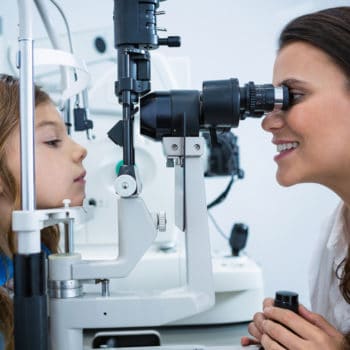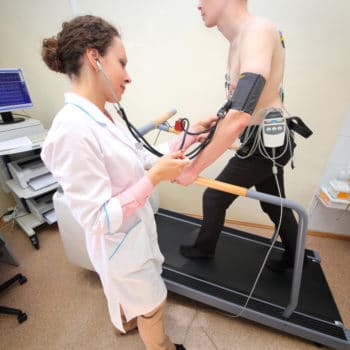Why We Love It
-
$45,730Potential Avg. Salary
-
23.2%Job Growth Rate
-
Growing DemandJob Outlook
-
Dependable Daily WorkloadCareer Attribute
Neurodiagnostic Technologists conduct tests and assist in the diagnosing of diseases or issues in the brain and nervous system in human beings. They use complex diagnostic equipment to preform these tests. This individual discovers any abnormalities to allow a physician to diagnose and treat the patient.
Recommended Schools
What is a Neurodiagnostic Technologist?
The following responsibilities are common for Neurodiagnostic Technicians:
- Prepares patients for nerve conduction tests and medical procedures
- Tests patients nervous system for proper functioning procedures
- Measures and monitors electrical activity in the brain, nerves and muscles
- Writes reports and record the patients progress in notes and reports to the physician
- Assists physicians with treatments and procedures for neuro-deficiencies
A Day In The Life
Neurodiagnotic technicians use state-of-the-art equipment, science and technology to help diagnose and treat neurological diseases and disorders. They preform non-invasive neurological tests on patients under the supervision of an attending physician. They use a variety of electrodiagnostic equipment to preform these neurological tests and treatments.They most frequently use a machine called the EEG machine, which monitor brain waves and functionality.
They then review and edit any test results before sending them to the physician for diagnosis purposes. Within these reports they must account for any interferences from any outside sources like poor electrode contact or patient movement. They may also measure things like visual or auditory stimuli to determine a patients response.
Typical Work Schedule
Work schedules may vary in this profession because these individuals must accommodate many patients different schedules as well as shifts, overnights and weekends will be required due to the nature of the work of this career.
Projected Job Growth
The projected job growth for this occupation is expected to be higher than average. According to the national average, there are currently not enough trained technicians to fill available job openings, especially in the sleep laboratories.
Typical Employers
These individuals can expect to work in hospitals, rehabilitation centers, clinics research facilities or sleep labs.
Recommended Schools
How To Become a Neurodiagnostic Technologist
A student can become a neurodiagnostic technologist after approximately a year of study along with a certification or enrolling in an associates program. Their education should include both hands on training in a laboratory and supervised clinical internship. Pursuing an associates degree in applied sciences in electroneurodiagnostic technology is ideal for individuals wanting to become and EEG specialist. Coursework in medical terminology, anatomy & physiology, biology and professional ethics are required for this job. Hands-on training and lab work will introduce the student to the tools, computers and machinery required to do and how to properly use that equipment in clinical situations. Students are taught how to use various neurodiagnostic machines such as, and electroencephalogram machine (EEG) and also how to record, interpret and analyze readings from the machine. After graduating, the student should obtain a certification examination to receive professional credentials in an area of neurodiagnostic specialty. Both education and clinical experience are necessary to attain a sufficient knowledge base for this occupation.
These individuals must be comfortable working with various kinds of patients, must be able to communicate clearly and effectively and also have efficient record keeping skills. Other desirable traits include refined fine motor skills, adequate hearing and vision and excellent critical thinking abilities.
Neurodiagnostic Technologist Salary Data
We’ve provided you the following to learn more about this career. The salary and growth data on this page comes from recently published Bureau of Labor Statistics data while the recommendations and editorial content are based on our research.
National Anual Salary
Low Range
$32,030Average
$45,730High Range
$70,340National Hourly Wage
Low Range
$15/hrAverage
$22/hrHigh Range
$34/hrHow do Neurodiagnostic Technologist salaries stack up to other jobs across the country? Based on the latest jobs data nationwide, Neurodiagnostic Technologist's can make an average annual salary of $45,730, or $22 per hour. This makes it an Above Average Salary. On the lower end, they can make $32,030 or $15 per hour, perhaps when just starting out or based on the state you live in.
Salary Rankings And Facts
#443 Nationally for All Careers
Programs and Degrees
Here are the most common degrees for becoming a Neurodiagnostic Technologist. a is usually recommended and specifically a degree or coursework that prepares you for the particular field, see below.
Highest Education Among Neurodiagnostic Technologists
- 4.8% Doctorate
- 7.5% Masters
- 21.3% Bachelors
- 14.4% Associates
- 31% College
- 19.3% High School
- 1.7% Less than High School
Job Growth Projections and Forecast
2014 Total Jobs
102,2002024 Est. Jobs
125,900Job Growth Rate
23.2%Est. New Jobs
23,700How does Neurodiagnostic Technologist job growth stack up to other jobs across the country? By 2024, there will be a change of 23,700 jobs for a total of 125,900 people employed in the career nationwide. This is a 23.2% change in growth over the next ten years, giving the career a growth rate nationwide of Below Average.
Growth Rankings And Facts
#36 Nationally for All Careers
What Companies Employ The Most Neurodiagnostic Technologists
| Industry | Current Jobs | New Jobs Needed | % Increase |
|---|---|---|---|
| General medical and surgical hospitals; private | 39,200 | 2,800 | 3% |
| Offices of physicians | 9,500 | 2,100 | 2% |
| General medical and surgical hospitals; local | 4,500 | -100 | 0% |














